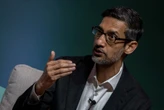AI has been used in the hiring process for many years. Anyone who has ever wrangled their résumé into an Applicant Tracking System has experienced the frustration of distilling your human-ness for a keyword-focused bot. But that’s just scratching the surface. Already a quarter of employers use some form of AI in their hiring process and, according to some estimates, nearly 70% of companies will be using AI tools to hire by the end of this year. It’s no surprise that AI in hiring is attractive to employers. It can make what’s often an overwhelming and time-consuming process much more efficient. But for job seekers, this technology can make the already opaque hiring process more difficult to navigate. And now, as AI becomes more sophisticated and widespread, it won’t stop there. Even the interview, often the most human part of the hiring process, is being outsourced to bots. So, how can job seekers prepare for these changes? What should companies and hiring managers consider before implementing new tech? On the latest episode of The New Way We Work, I spoke to Dr. Kerry McInerney, an AI ethicist and researcher at the University of Cambridge. She says that from a candidate’s perspective the job search process now has “a lot of unknown unknowns.”
4 ways AI is used in hiring
McInerney says there are four main areas where you’ll see AI being used in hiring, some more visible than others:
1. The dissemination of ads:Companies might use AI to decide where job ads are surfaced and deliver it to specific people who the recruiter might think would be a good fit. This application could seem innocuous, but it has the potential to encourage the same profile of candidates if the parameters are too narrow.
2. Screening candidates:Here, AI is used to go through a large volume of résumés and create a short list. This is very common and also widely critiqued. Not only do these systems make it difficult for candidates to craft a résumé that will get past these screens, but it’s also ripe for unintentional bias. McInerney referenced a 2019 case study where Amazon tested a beta version of an AI résumé screening tool that was shown to systematically discriminate against female candidates. Beyond extreme red flags like that, résumé screening tools often miss things like transferable skills or nuance like career gaps.
3. Assessment of candidates:Another way AI tools are being used in hiring is to test candidates or to distinguish candidates from one another once a company has a short list. Most of this is pretty visible to candidates: things like gamified tests and skill assessments. Another is AI video interviews. McInerney pointed out that these tools had a boom during COVID-19, but that many of the metrics they measure (including facial recognition-based tools that read a candidate’s voice and expressions and do sentiment analysis on the words that they use to get a sense of a candidate’s personality) are viewed as pseudoscience by AI ethicists. It’s also not possible to discern someone’s personality from their face. Some AI interview tools have also shown to rank candidates higher for arbitrary and irrelevant factors, like having a bookcase in the background.
4. Administrative aspects of hiring:The most innocuous way AI is being used in hiring is tools that help companies schedule interviews, or via AI chatbots on a company’s website that answer questions about a job. These types of tools run a very low risk of introducing bias into the process and fulfill the basic promise of AI: to reduce tedious and time-consuming tasks.
The importance of asking questions
McInerney emphasized that the AI hiring tools are made with the best intentions but that, if they aren’t created with the expertise of hiring managers, they can end up out of step. Her bottom line for employers: Don’t be sucked in by AI hype that tells you a tool can do things that actually sound really impossible.
“There’s just a huge emphasis on AI literacy, which is very important,” she says. “Sometimes, the way that these tools get talked about in hyper-technical ways can make people feel like that they can’t ask those questions or they’re scared of looking silly or ignorant if they ask them.” But, she says, ”It’s really important to ask those questions, because any tool that is worth its salt should have scientific backing and should be able to show it.”In other words, the most important tool when using AI in hiring is the very human skill of critical thinking.Listen to the full episode for more on how AI is transforming hiring for both candidates and companies.










No comments